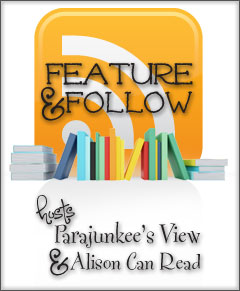A recent post of mine started some e-mail/twitter drama that I'm uninterested in continuing. I may need to at some point, but for now that kind of dialog is beneath mention. Lost in the discussion, however, was the real issue I was trying to bring attention to. It's something that the audience for indie publishing should be aware of, because I expect to see more of it in the future.
Long story short: some time ago, a
Fighting Fantasy fan named Kieran Coghlan wrote a FF-based gamebook called
Hunger of the Wolf and distributed it for free on the internet. A few years later, Tin Man Games licensed the book from Coghlan and reworked it into
Revenant Rising, one of their
Gamebook Adventures line of e-gamebook mobile apps. Changes were made to incorporate the
Gamebook Adventures combat system, and to change the setting from Titan (the world of
Fighting Fantasy) to their own Orlandes setting. Changes were also made to the plot, though in broad strokes it is the same: Hero is betrayed by comrade, saved from death by not-quite-benevolent wizard, tracks down betrayer via long cross-country trek, has various adventures along the way, confronts and kills betrayer in single combat during a larger army vs. army engagement, is betrayed again by wizard, and must finally escape wizard's control with the help of a more trustworthy ally. The text, likewise, has been changed as little as practical. I'd estimate that between one-third and one-half of
Revenant Rising is copy and pasted from
Hunger of the Wolf, with the entire middle being nearly identical.
By all accounts, this was done legally. There was no violation of copyright law or anything like that. However, it was a very questionable move from the perspective of Tin Man's customers, who were asked to buy something that, unbeknownst to them, was already available for free. Again, this is legal, and I can't really think of a reason it shouldn't be, but it leaves a very, very sour taste in my mouth.
As I noted in my previous post, there is some precedent for this. A chapter of Arthur C. Clarke's
2010 is lifted wholesale from it's more-famous predecessor. Nobody made this an issue, and Clarke himself even joked about it, because the chapter in question was dry exposition with little to do with the story. Silver Age
Superman comics recycled plots every few years, but because back issues were hard to find and the audience was expected to "grow out of them", it wasn't a big deal.
Garfield has become notorious for reusing punchlines, and nobody cares because they get the strip for free with the daily paper. Hell, Tin Man will be rereleasing the old
Fighting Fantasy books on their platform soon, and people are psyched. What makes this any different?
Two things make it different. One is dishonesty. When people buy Tin Man's
Fighting Fantasy reissues, they'll know exactly what they're getting, and they'll be cool with it. But
Revenant Rising is sold as a new work when it's nothing of the sort. Digging through the hype, I couldn't find a single mention of the fact that
Revenant Rising is, at its core, a book that I'd read before. You pay for something new and get something you already had and didn't need. If they had just released a
Hunger of the Wolf special edition or some such with alterations to remove the
Fighting Fantasy references, there wouldn't have been any trouble. But they tricked their audience, and their audience has a right to be miffed.
The second thing is disrespect, both for their audience and themselves. By pulling a move like this, and then expecting their customers to come back, they beg the question of how they expected to get away with it. There are two possibilities: one is that they expect that their readers will be unfamiliar with gamebooks. Their success, in other words, is based on their readers being naive. The other is that they expect their readers to catch it and come back anyway, because they don't care. Under this logic, they are under no compulsion to produce good work.
And that's the really concerning issue: their disrespect for their own writing. By doing this the author is saying that their books are nothing but a product to be sold, repackaged, and resold as they wish. They have commoditized their work and undermined their own artistic integrity.
If you read my blog because you like books, rather than gamebooks, you might not care about this little tempest in a teapot. But consider this: whenever you buy a new e-book, you're essentially making a blind purchase. What do you have to make your buying decision? A cover image, a blurb, and the name of an author that you may or may not recognize. Sometimes a sample of the first chapter or so. What's to stop an unscrupulous author from making some marginal changes and then pushing the same book out under three or four different titles? Maybe under three or four different pen names? He hasn't broken any laws in doing so, but he has broken the unspoken trust to provide his readers with the best storytelling he can. The reader can't be blamed for taking exception. Nor can the reader be blamed for swearing off an author, a genre, or even reading itself. Nobody is going to indulge themselves in a hobby that has them constantly cheated out of their money.
When authors pull stunts like this, it doesn't just harm their own reputation, but the reputation of honest authors doing honest work. And it means newcomers have to try even harder to overcome the skepticism of an audience who thinks they're probably just another sock puppet pushing another cloned book. Buyer beware in this brave new world of e-publishing, and readers and authors alike beware of recycled content.


